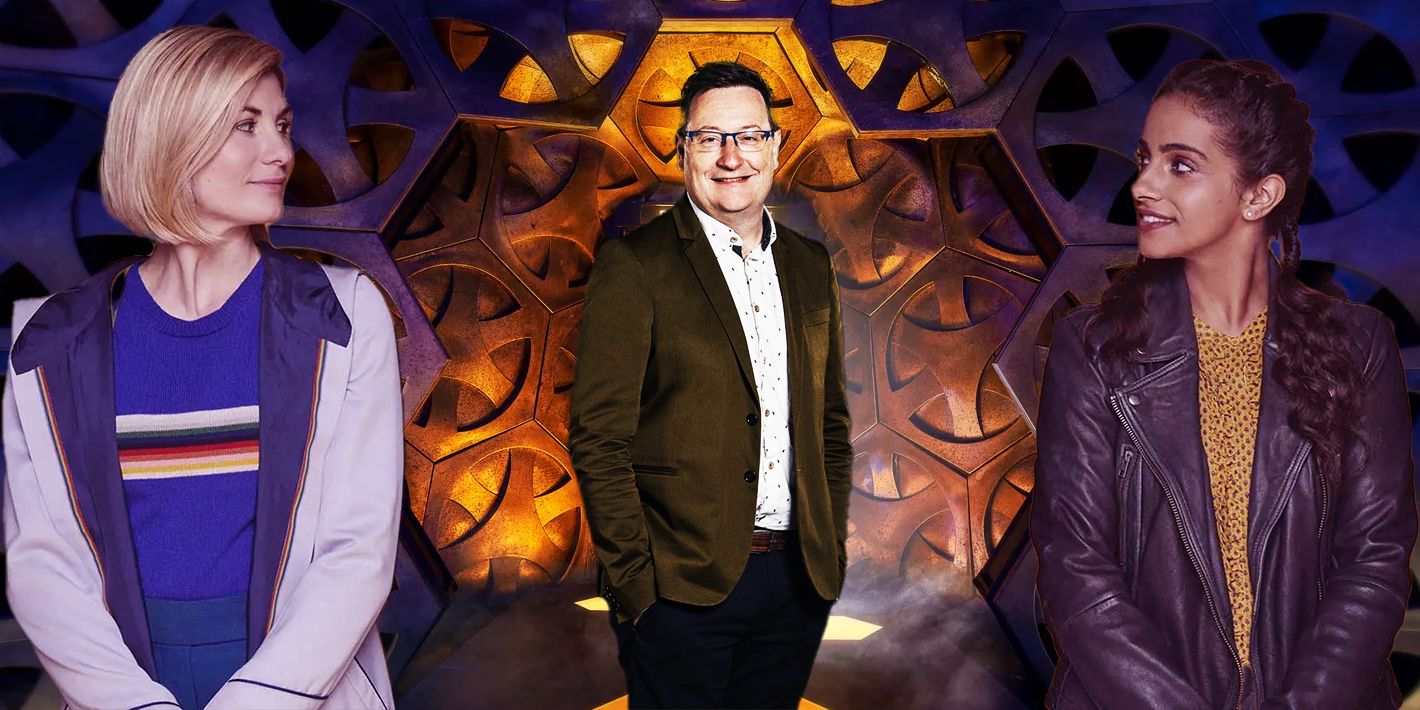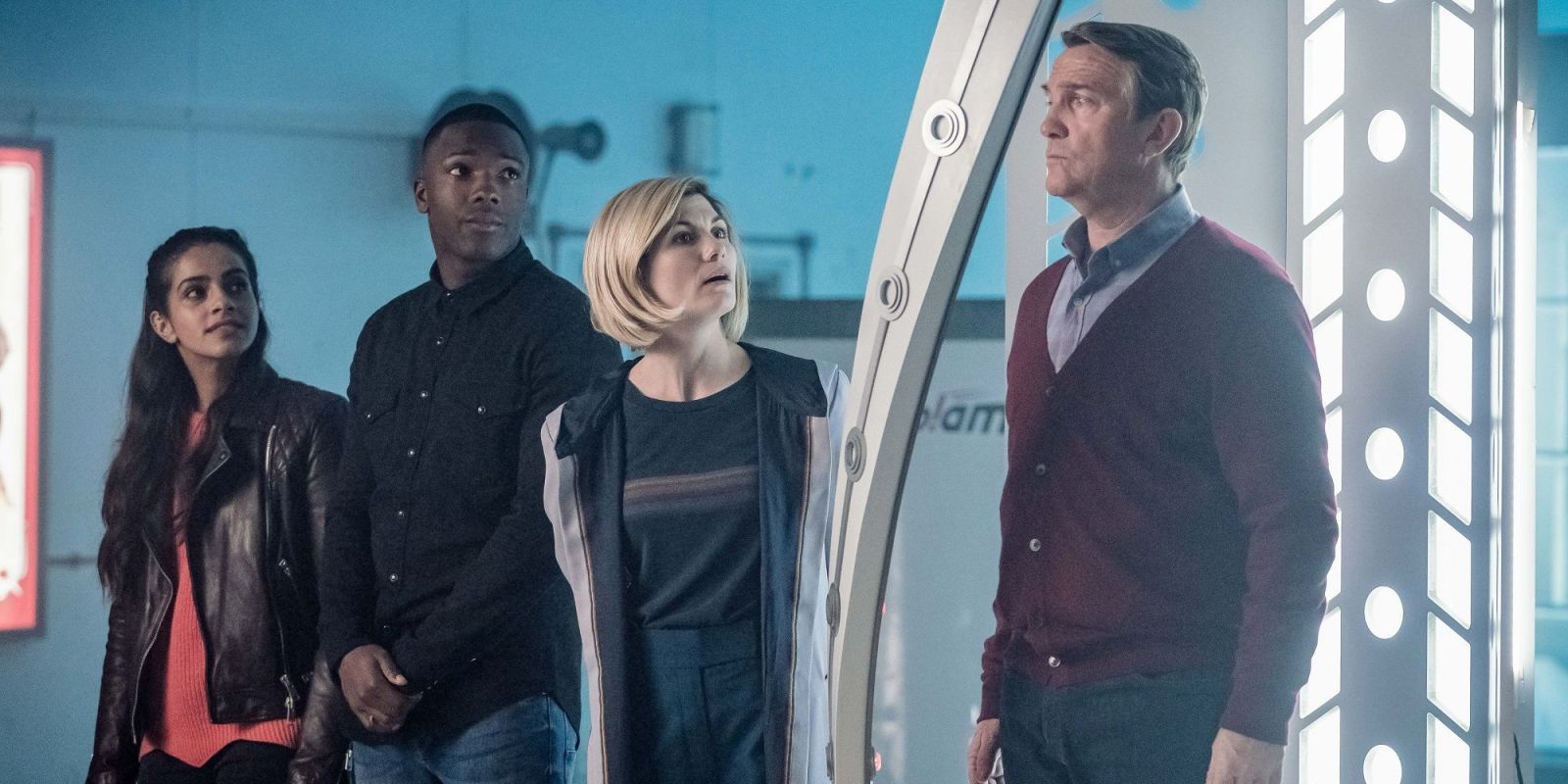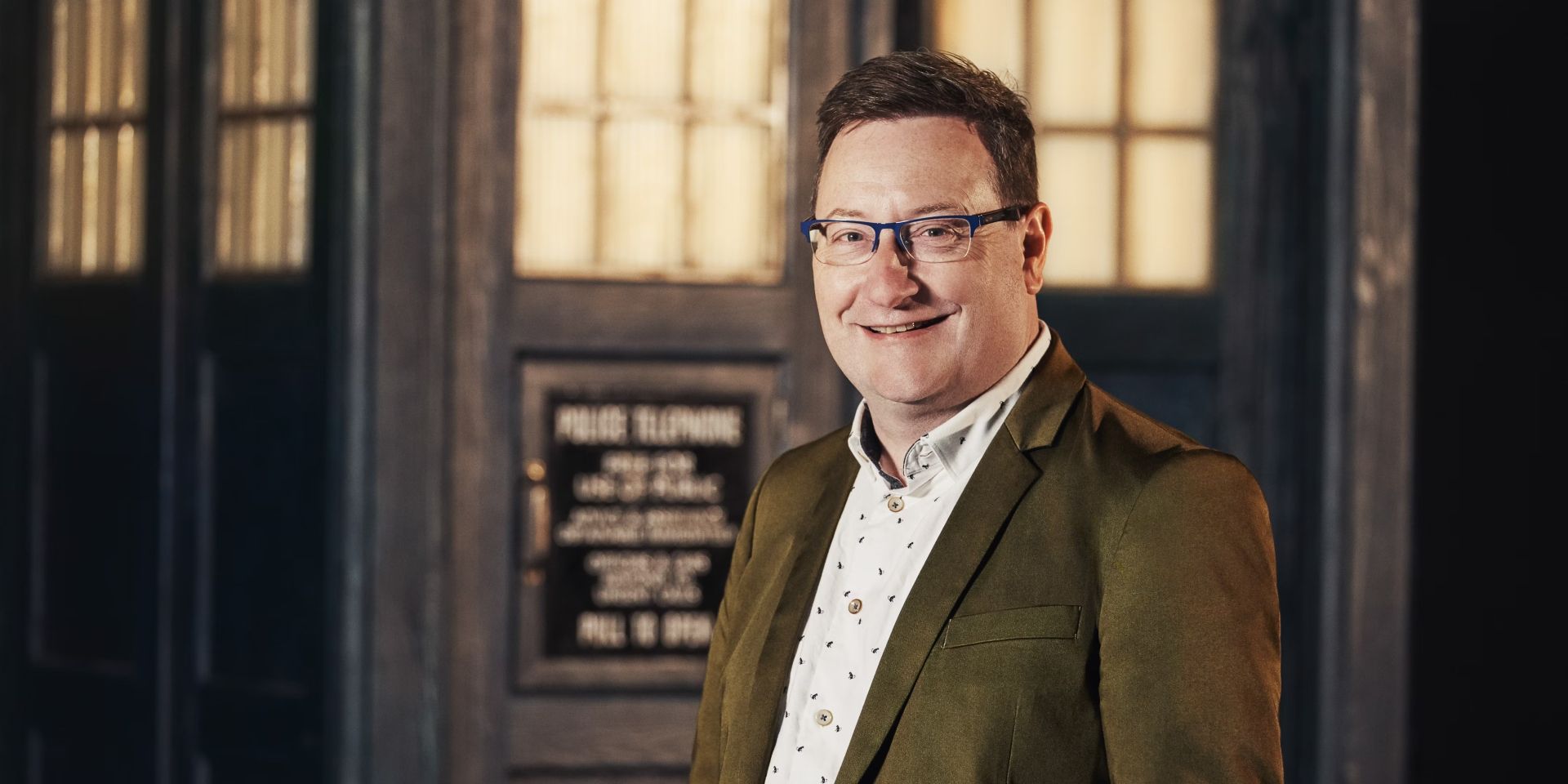Warning: This article contains spoilers for Doctor Who: The Power of the Doctor!The newly released special episode of Doctor Who, “The Power of the Doctor,” perfectly demonstrates the biggest way that the Chibnall era failed the Thirteenth Doctor, her companions, and Doctor Who’s viewers. The long-running show about an alien called the Doctor who travels the universe in a ship called the TARDIS has been through multiple main cast members and multiple writers. The beginning and end of Chris Chibnall’s time as Doctor Who’s showrunner coincided with the beginning and end of the Thirteenth Doctor (Jodie Whittaker). While Chibnall’s era brought a lot of good to the show, most notably more diverse actors and stories, much of the era’s execution was poorly received.
In “The Power of the Doctor,” both Chibnall and the Thirteenth Doctor’s final episode, there is a scene in which the Doctor is racing around the TARDIS while the Doctor’s companion Yaz (Mandip Gill) tries to stop her long enough to get an explanation of what is happening. The Doctor tells Yaz, “Sorry, no time,” to which the companion replies, “Make time.” This is only one among many references in the episode to the Thirteenth Doctor’s tendency to never explain things to her companions. This scene, and the whole episode, shows just why Chibnall's era of Doctor Who was not well received. Chibnall never made time for the Doctor’s relationship with her companions, instead prioritizing big ideas and action, which weakened the show’s strong foundations and alienated its viewers.
Doctor Who Failed the Thirteenth Doctor & Her Companions
From Doctor Who's very beginning, the relationship between the Doctor and the Doctor’s companion (or companions) has been at the very heart of the show. Seasons and eras of Doctor Who, as much as they are categorized by the showrunner, are identified largely by which Doctor and which companion they feature. The recurring monsters and complex lore are, of course, core elements of the show, but for much of Doctor Who, the adventures are the vehicle through which to tell the story of the adventurers, who are ultimately more important. Chibnall had many big plans for Doctor Who, and a lot of brilliant ideas, but by prioritizing those big plot ideas, he cheapened the development of the Thirteenth Doctor and her companions, both as individuals and as a unit. So, while the Eleventh Doctor (Matt Smith) and his original companions Amy (Karen Gillan) and Rory (Arthur Darvill) were given the time to truly become a family over the course of their seasons together, the Thirteenth Doctor and her companions were cutely called a "fam" without being given the screentime to actually grow into one.
What makes the relationship between Doctors and companions even more meaningful is that they learn and grow from each other. By neglecting the development of the relationship, the development of the characters as individuals was also neglected, resulting in a Doctor who doesn't learn from her companions. Despite being told by her companion to "make time," and despite listening at that moment and making the time to include her companion, later on in "The Power of the Doctor," the Thirteenth Doctor faces a TARDIS full of companions from multiple eras, all clamoring for an explanation of what to do and what's going on, and the Thirteenth Doctor once again says, "No, sorry, no time." Without the space to fully explore the connection between the Doctor and the companions, the companions of Chibnall's era were left underdeveloped, and the Doctor of Chibnall's era was left unchanged.
Doctor Who Pushed Away Its Own Viewers
The Doctor and companion relationship has been at the heart of Doctor Who for a good reason, the same reason that, despite the Doctor traveling all across the universe, the companions always come from the same time and place as the majority of Doctor Who’s viewers (modern-day UK). The show’s viewers experience the adventures of the Doctor through the eyes of the companion, who is, in a lot of ways, just like them. The companions, and the very real bond that they form with the Doctor, make the monsters, lore, and action accessible to the viewers. The Doctor’s relationship with the companions is what also helps to humanize the alien Doctor, so the companions are also what make the Doctor themselves more accessible to the viewers. Because the Thirteenth Doctor had “no time” to truly bring her companions along, the show excluded its viewers from the Doctor’s world too.
In the behind-the-scenes video about the making of “The Power of the Doctor,” Chibnall describes the episode as “a big, action-packed, multi-monster adventure.” This special, and much of Chris Chibnall's Doctor Who, is surely packed with action and monsters, which is why the most crucial element of Doctor Who is missing. Doctor Who is at its best when the relationship between the Doctor and their companions is central in the storytelling. By not prioritizing the Thirteenth Doctor’s relationship with her companions, the Chibnall era failed its Doctor, its companions, and Doctor Who’s viewers.



